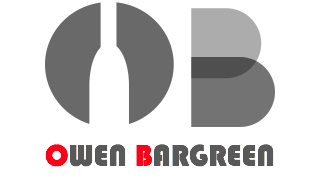“Now that’s a serious Rose” proclaimed EFESTĒ head winemaker Peter Devison as I tasted with him. I agreed, the Rose was plush, mineral-driven and downright delicious. Peter come from a rich winemaking background and has a bachelor’s degree in Viticulture and Oenology at Lincoln University in New Zealand. He has been making wine for nearly fifteen years and his winemaking journey has spanned four countries and seventeen harvests. Peter is just an awesome guy to hang out with. I had the great pleasure of talking wine with him a few weeks back. He talked about his winemaking transition at EFESTĒ, as well as his background and inspirations in wine. Here is my exciting interview with the highly talented Peter Devison of EFESTE.
WWB: How did you transition from your background in wine education to winemaker?
PD: My transition to winemaking was driven by the need to know everything about production, paired with a passion to create. Starting in the sales/hospitality side at a young age (19) and having completed the WSET program shortly after, I was hungry for more. Something that allowed me to utilize my science background while tapping into my artistic aspirations. Having the exposure to the wines of the world helped shape my palate and gave me perspective on what I wanted to make, but with age and much more experience I realized that while I can be inspired by other wine growing regions, I make Washington wine and so my style has pushed me to try and express the terroir, or ‘typicity’, of Washington fruit. Having said that, I really gravitate to the wines that remind me in some way, or nuance, of the old world. And when people taste my wines and can draw those comparisons, I get extremely happy. I am very much an emotional taster.
WWB: How did you decide to come to EFESTE?
PD: The winery has always been known for a high quality and distinct program based on native fermentation. When I was asked to take it over, I jumped at the opportunity, as it is a style that I gravitate to. It is a small, hands on program that allows me to be completely involved from the vineyard to the bottle; I literally handle all fruit when it gets to the cellar. Although it’s a continuation of the former winemakers vision, it is a philosophy that I adopted early on in my career and I like to think that I’ve taken it to another level here at EFESTE. The wines are purer and more focused than ever. I’m really excited about where we are going as a brand.
WWB: 2012 EFESTE ‘Final Final’ Red Wine (WWB, 93) was a gorgeous and rich red wine that on my 2016 Washington Wine Blog Top 100. Can you talk about this great wine?
PD: This wine has always been constructed with the best vineyards; the same vineyards that go into our higher price-point wines such as Big Papa, Ceidleigh and Jolie Bouche also make up the foundation of Final Final. This paired with a great vintage and great barrels makes a pretty drinkable wine! We aged it for 20 months in 100% French oak (50% new), but the wine wasn’t too aggressive with overt wood tones or flavors. The wine evolved nicely into a rich, but balanced – almost nectarous – wine, without being too demanding, or requiring lengthy cellaring time.
WWB: I recently had the chance to review your 2016 EFESTE Rose (WWB, 91) which is a gorgeous new release. Can you talk about your style of Rose that you have created?
PD: Inspired by the great rose’s of Provence, I decided to grow and make our rose with that style in mind, although it is distinctly Washington. The varieties used, Mourvedre and Grenache, have a symbiotic relationship when it comes to this style of wine, so I field blend pick (pick both varieties together) and the fruit is delivered straight to the press without additional soaking to extract color. Whereas many wineries have created rose’s as an afterthought, or as a method to concentrate their reds, I grow this fruit for rose – it’s a wine by design. It ferments natively in a mix of concrete, stainless steel and neutral French oak and ages for 4 months on the lees before bottling. I build it to drink well all year round as it has the minerality and complexity to develop for a long time. I sometimes refer to it as the ‘pink feral’.
WWB: How do you describe your winemaking style?
PD: My philosophy surrounds the concept: “less is more”, meaning the less I have to intervene, the better a wine’s potential to be great. Whereas I have the technical education and experience to overwork a wine, my choice is to step away and only act if I absolutely have to. This, of course, works only if the fruit is grown well and comes to the winery healthy. So, it is in the vineyard where I choose the work and detail to be done. I work with outstanding growers and I believe Washington can grow some of the best fruit I’ve ever worked with , so I have that going for me! As far as what I’m looking for in my wines as a result of this method? Vinousity. To me, this word means a culmination of all the things that give a wine aroma and flavor. Not just the fruit, which we have in spades, and not just the oak, but the nuances: herbs, meat, smoke, tar, flowers, minerals, etc. These are the subtle components I think I can coax out of my wines by making them in this way.

